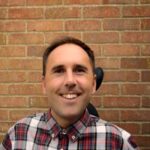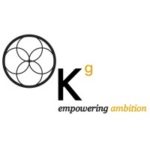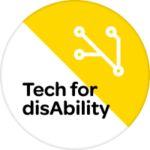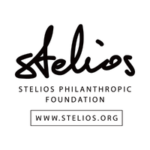Disability Within the High-Growth Space
Category: Uncategorized
According to data published in 2018, around 22% (or 13.9m people) in the UK reported a form of disability. This means that around one in five people experience the government’s definition of disability at some point in their life.
In this article, we’re spotlighting some of the high-growth talent within the UK’s disabled community, as well as highlighting the resources and funding sources available for prospective founders with disabilities.
What do we mean by disability?
The most common disability in the UK, reported by 51% of people surveyed with disabilities, is mobility impairment. However, the 2010 Equality Act sets out that disability can be any long-term illness or impairment causing significant difficulty in a person’s life. Often, disabilities are invisible—deafness, chronic pain, or dyslexia, for example.
Categorisations can change over time, and there is often some overlap in disabilities: for instance, 24% of people reporting a disability also reported a mental health impairment. Some disabilities occur permanently, some progressively, and some in shorter terms.
Disability and entrepreneurship: the data
Over the past few years, the employment rate has consistently been around 30% lower amongst disabled individuals versus non-disabled. Yet the rate of self-employment is higher for disabled people: 18% of disabled men and 8% of disabled women are self-employed, versus 14% and 6% of people living without a disability.
Whilst an Australian study has found that the rate of entrepreneurship is 50% higher than average amongst disabled individuals, precise data on the economic contribution made by disabled entrepreneurs in the UK is scarce. We do have some metrics to go by, such as the Stelios Awards for Disabled Entrepreneurs, which clocked up a record number of entries in 2018 (and has since risen further).
Why might self-employment and entrepreneurship be more common amongst the disabled community? It isn’t because disabled individuals have greater access or more opportunities. Many contend, instead, that those with a disability are likely to be entrepreneurs out of necessity rather than choice. Disabled individuals face obstacles in the conventional job market: freedom of travel, discrimination, and workplace accessibility, to name a few. People living with disabilities often turn to self-employment and entrepreneurship because they need to create their own opportunities.
Despite the barriers they face—such as access to startup capital—disabled individuals may in fact be more suited to entrepreneurship, with greater empathy and understanding of niches that are often overlooked, offering solutions through lived-experience.
Disabled entrepreneurs may also be more “suited to the challenges of enterprise” as they’ve already “been through every challenge under the sun”—says Samona Williams, a 2018 Stelios Awards winner and founder of Cocoa To Thrill.
High-growth founders with disabilities
Alex Papanikolaou
Title: Founder and CTO
Company: Freedom One Life

Alex Papanikolaou is a Glasgow-based founder. He created Freedom One Life in 2013, a company that develops industry-leading power chairs. Alex created the startup after a lifetime of experiencing the limitations and frustrations of the powered wheelchair market. He has cerebral palsy, and has used a powered wheelchair since the age of 12 in over 60 countries—putting him in the perfect position to understand user applications and optimal design. The company has developed a product with significantly improved performance, reliability, comfort, and transportability compared with existing chairs.
Alex won the Stelios awards in 2016 for entrepreneurial success, and his company has raised £600k across two rounds to date. Part of the company’s investment came from a crowdfunding round on SyndicateRoom—the ex-crowdfunding platform that pivoted into a private equity fund in 2019—and part from Murray Capital. Freedom One Life has also welcomed £400k in awards and grants from Innovate UK, Scottish EDGE and Scottish Enterprise. The funding to date has allowed for the Series 5 power wheelchair to be fully developed and tested to over 10,000 kilometres. The company was most recently valued at £3.95m.
Alex tells us that, in his experience, disabled people struggle to be seen to “contribute and add value”, which is “particularly amplified when it comes to investment”. Physical presentation is often conflated with capability, and is heightened by investment “revolving around being able to give the perfect pitch in the shortest amount of time possible”. Alex hopes that investors will work to develop inclusive investment processes and encourage disabled entrepreneurs to apply for funding. Right now, the process fails to recognise talent and potential over the expected “formulaic presentation”
Alex is currently raising a third round for £300k, which will allow Freedom One Life to enter European markets, with plans to eventually scale into US markets, too. The founder has worked on various inclusiveness projects across the world as an Equality and Inclusiveness Consultant. He’s consulted for clients such as Network Rail and the United Arab Emirates government—helping establish a recruitment agency for disabled people in UAE.
Moving forward, Alex says that he wants to see more disabled entrepreneurs in the startup world. He crucially points out that the startup ecosystem is driven by inclusive ideas to change the world and improve lives, and yet “disabled people as company founders or CEOs are few and far between.” He continues: “I think seeing more disabled people as commercial leaders could be the driving force to begin changing the centuries-old prejudice that disabled people don’t add value”.
Victoria Nelson
Title: Founder and CEO
Company: Deaf4Deaf

Victoria Nelson created Deaf4Deaf in 2016 to make counselling services more accessible to deaf people across the UK, building a team of fully-qualified sign language practitioners, the majority of which are deaf. They communicate with clients through a number of sign languages, lip-reading, or a mixture of sign and spoken word.
The company started as a privately-funded venture after Victoria experienced first-hand how counselling services often required an interpreter, extensive travelling, or long waiting times for disabled people—finding that often, those who need the most support can face the most barriers. Victoria grew up in Manchester and was one of the first deaf people to graduate as a psychotherapeutic counsellor from the Metanoia institute in Ealing in 2015.
Deaf4Deaf was quickly requested often enough by NHS branches that it became an NHS-approved provider. Clients can either book directly through the company, or can be referred through their GP at a participating surgery. The services offered include online psychological therapy via video, psychotherapeutic counselling, coaching, and tuition services (moving 100% online throughout COVID-19).
Victoria says that a deaf practitioner is “aware of [deaf people’s] culture, their communication needs” and “has a personal level of empathy about their experiences”, which translates into better service. In 2019, Victoria and Deaf4Deaf won the top prize of £30,000 in funding from the Stelios Awards for Disabled Entrepreneurs. Deaf4Deaf is currently a finalist in the National Diversity Awards 2020 sponsored by ITV News.
Today, Victoria is a member of the disability and equality committee at the Metanoia Institute and continues to scale her company. Deaf4Deaf now has 12 qualified counsellors available, and works with the majority of NHS regions within England and Wales, striving to build a “healthier-minded deaf community that can live more freely in society at large.”
Hiroki Takeuchi
Title: Co-founder and CEO
Company: GoCardless

Hiroki Takeuchi founded GoCardless in 2011 with Tom Blomfield—who later went on to found fintech bank Monzo—and Matt Robinson. Hiroki was able-bodied when GoCardless was founded, until a cycling accident in 2016 left him paralysed from the chest down. This was just one year after he became the sole chief executive of GoCardless. Takeuchi returned to work just 12 weeks later.
GoCardless develops a platform that allows companies to make and receive payments more easily via direct debit. The company’s services are used by 50,000 businesses across the world, with offices in London, Paris, Munich, Melbourne, and San Francisco.
GoCardless has continued to grow rapidly under Hiroki’s leadership since his accident, raising £74.7m between 2017 and 2019 from Accel, Balderton Capital, Notion Capital, Passion Capital, Google Ventures, and Salesforce Ventures. GoCardless is officially considered a scaleup and featured on the Deloitte Fast 50 list in 2016, 2017, and 2018.
Hiroki says that disability brought him some degree of clarity: it “reinvigorated me and made me less patient in a positive way”, as he learnt that “my job wasn’t to do everything, but to do a few things and do them well”. He quickly saw that there were “all these different perspectives that people had which I hadn’t fully appreciated”. GoCardless is now far more committed to inclusion, creating LGBTQ+, ethnicity, gender, disability, and diversity targets and reports focussing on “bringing those diverse views into the team and creating an environment where people are from a whole range of backgrounds.”
Martyn Sibley
Title: Serial Founder & CEO
Companies: Disability Horizons, Accomable, The Purple Goat Agency

Martyn Sibley is a serial founder, speaker, published author, and champion of disabled entrepreneurs. Sibley has spinal muscular atrophy, and has appeared on multiple “most influential” lists over the years, placing third in 2016 on the Disability Power 100 and appearing again in 2020.
In 2011 he founded Disability Horizons, a multi-media publishing and inclusion consulting company, aiming to provide a voice for disabled people. Disability Horizons was founded in 2012 and attended the Future Business Centre’s Future 20 accelerator in 2019. The company is based in Cambridgeshire and publishes articles on everything from technology, relationships, sports, employment, and travel.
In 2015 he co-founded Accomable, a startup making travel easier for disabled people by verifying the accessibility features of properties across the world, such as step-free access. Users could search for and book holiday accommodation with the exact facilities needed. Before being acquired by Airbnb in 2017, it had over 1,000 listings in 60 countries, many of which Sibley travelled to and surveyed himself.
Martyn co-founded Accomable with another influential disabled entrepreneur: Srin Madipalli. Srin, a childhood friend of Martyn, stayed on at Airbnb to become Accessibility Product and Program Manager. Today, Srin is also an active advisor and mentor to startups in London, involved with accelerators such as Creative Destruction Lab and the Oxford Foundry— plus is a board member at Included VC and an active angel investor.
More recently, Martyn Sibley founded the Purple Goat Agency, a London-based disability marketing agency. It aims to raise awareness of disability through marketing and advertising, using a strong network of disabled influencers to connects businesses with the disabled market (which accounts for around $8 trillion worldwide annually). It was launched in 2020 and is a sister organisation of London-based marketing company, The Goat Agency.
To the question of how he views entrepreneurship for disabled individuals in the UK right now, Martyn answers that while “it’s a great time for innovation and disruption” during a time of “new technologies and a societal shift to more inclusion”, accessing capital is “still very difficult.”
Organisations and funds
The Kaleidoscope Group
Founded: 2014
Organisation type: Funding, recruitment, advisory, charity

Kaleidoscope Group is an organisation set up by investor and entrepreneur Hardeep Rai. The aim of the organisation is to invest in business ventures founded by people with disabilities, and help them through the process of setting up a business. Hardeep began to understand the countless barriers faced by disabled entrepreneurs after his son, Eshan, was born with cerebral palsy.
Hardeep realised that “there must be many other people in a similar situation, with the talent—but not the opportunity or backing—to start up their own business.” Kaleidoscope was born to tackle that problem.
Kaleidoscope Group has many branches and functions: a private equity fund, a recruitment service, an advisory service, and a foundation that provides grants of around £10,000 to disabled entrepreneurs. Ultimately, the group works to remove barriers to capital for disabled individuals and realise their economic potential, talent, and skills. It is one of the only funds that specifically invests in disabled business-owners in the UK.
You can apply for grants and submit investment proposals here.
TLA Tech for Disability
Founded: 2020
Organisation type: Community group

Tech London Advocates for Disability raises awareness of tech startups working to benefit the disabled community. Specifically, it calls for more universal accessibility in the UK tech industry and highlights the role that accessibility and disability-focussed tech startups play in improving lives, ultimately encouraging tech startups to build accessibility into all their products.
Moving forward, TLA for Disability is creating an online resource hub signposting the best accessibility practices and techniques, building a discussion Slack community to exchange ideas amongst members, and organising inclusive events.
The organisation was only launched in September, so is one to keep an eye on. Its e-launch event was in September, and hosted speakers such as Martyn Sibley, Elizabeth Takyi of Aspire2Inspire, and Matthew Johnston of Thoughtworks.
The Stelios Awards
Founded: 2006
Organisation type: Charity

Awards can be an effective method of spotlighting successful entrepreneurs, increasing awareness and offering additional sources of finance for winners. One of the most comprehensive, active examples of this in the UK is the Stelios Award for Disabled Entrepreneurs, which offers a prize of £70k allocated across five winners. The awards run every year in conjunction with Leonard Cheshire Disability Charity, but were postponed in 2020 due to COVID-19. Instead, a £150k donation was made to Leonard Cheshire’s frontline carers.
The Stelios award is only available to companies operating in the UK, and uses the 2010 Equality Act definition of disability for applicants. It looks at promising, early-stage companies—no older than seven years, including charities and social enterprises.
Many of the startups and founders considered today were supported by a grant from The Stelios Foundation. The foundation now receives up to 90 applications in a single year, and has just under 600 active members in its entrepreneurial facebook group. A full list of winners since the awards began in 2006 can be found here.